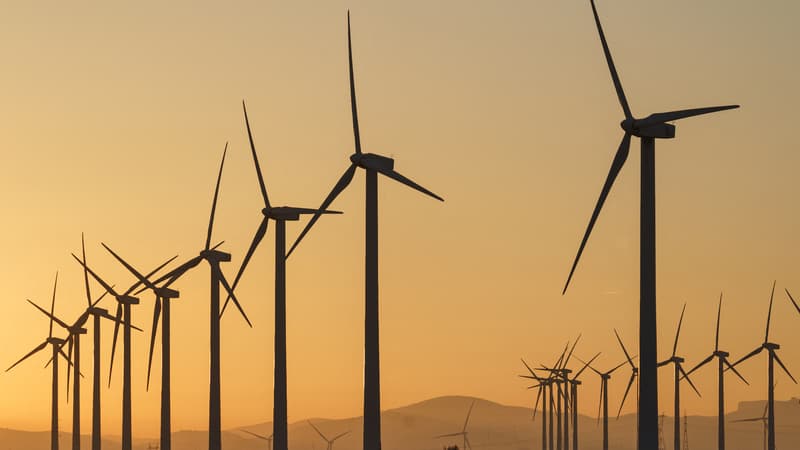The ambition is great. The German government and the European wind industry presented a plan on Tuesday to reduce the dependence of the sector to the rare Chinese earths, in a context of tensions with beijing and ruptures in the supply chains. This roadmap, established by the German Ministry of Economy and Energy and five European Windows Federations, wants to make the sector “more resistant” and “avoid excessive dependence on imports of certain states.”
In Europe, more than 90% of these components, which play a key role in the wind but also the car or electronics, are imported from China. By 2029, 15% of the permanent imported magnets will have to come from other sources, then 50% of 2035, advocate the road map.
For rare earths, these metals present in permanent magnets, the sector wants to achieve a diversification of 5% in 2029 and 35% since 2030. To achieve this, the Ministry wants to strengthen investment guarantees, through long -term delivery agreements, as well as build associations with countries such as Australia and Japan.
Face export restrictions
These ads confirm Berlin’s strategy, reaffirmed by the coalition of Friedrich Merz, to “reduce the risks” associated with China. The German industry trembled particularly in the face of the restrictions on the export of Chinese land, determined in April by China in retaliation by US commercial barriers. At the end of July, the European Commission announced that it has negotiated an “improved” mechanism with Beijing to soften these exports.
China also remains a crucial market for German exports, but increasingly competed by local champions. European leader in land and sea wind energy, Germany, has built 25% of the new land and sea facilities in the EU in 2024, according to the Wellerope sector federation. And the country wants to triple, compared to 2024, its wind capacity in the sea by 2030, to meet its climatic objectives.
Source: BFM TV


